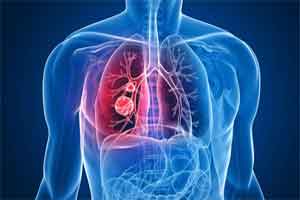- Home
- Editorial
- News
- Practice Guidelines
- Anesthesiology Guidelines
- Cancer Guidelines
- Cardiac Sciences Guidelines
- Critical Care Guidelines
- Dentistry Guidelines
- Dermatology Guidelines
- Diabetes and Endo Guidelines
- Diagnostics Guidelines
- ENT Guidelines
- Featured Practice Guidelines
- Gastroenterology Guidelines
- Geriatrics Guidelines
- Medicine Guidelines
- Nephrology Guidelines
- Neurosciences Guidelines
- Obs and Gynae Guidelines
- Ophthalmology Guidelines
- Orthopaedics Guidelines
- Paediatrics Guidelines
- Psychiatry Guidelines
- Pulmonology Guidelines
- Radiology Guidelines
- Surgery Guidelines
- Urology Guidelines
New guideline on screening of lung cancer released

A New guideline and expert panel report on screening for lung cancer were recently released and were published online by CHEST on Jan. 25.The expert panel developed a question bank to address the key areas of screening program implementation.
They identified 59 studies after a systematic literature review and after which issued upgraded recommendations and consensus-based statements.
Main recommendations :
- 1. For asymptomatic smokers and former smokers ages 55 to 77 years who have smoked 30 pack-years or more and either continue to smoke or have quit within the past 15 years, the panel suggests that annual screening with low-dose CT should be offered. (Weak recommendation, moderate-quality evidence)
- 2. For asymptomatic smokers and former smokers who do not meet the smoking and age criteria in Recommendation 1 but who are deemed to be at high risk of having/developing lung cancer based on clinical risk prediction calculators, the panel suggests that low-dose CT screening should not be routinely performed. (Weak recommendation, low-quality evidence)
- 3. For individuals who have accumulated fewer than 30 pack-years of smoking or who are younger than age 55 years or older than age 77 years, or who have quit smoking more than 15 years ago, and do not have a high risk of having/developing lung cancer based on clinical risk prediction calculators, the panel recommends that low-dose CT screening should not be performed. (Strong recommendation, moderate-quality evidence)
- 4. For individuals with comorbidities that adversely influence their ability to tolerate the evaluation of screen-detected findings, or tolerate treatment of an early stage screen-detected lung cancer, or that substantially limit their life expectancy, the panel recommends that low-dose CT screening should not be performed. (Strong recommendation, low-quality evidence)
- 5. The panel suggests that screening programs define what constitutes a positive test on the low-dose CT based on the size of a detected solid or part-solid lung nodule, with a threshold for a positive test that is either 4 mm, 5 mm, or 6 mm in diameter. (Weak recommendation, low-quality evidence)
- 6. For current smokers undergoing low-dose CT screening, the panel recommends that screening programs provide evidence-based tobacco cessation treatment as recommended by the U.S. Public Health Service. (Strong recommendation, low-quality evidence)
The consensus-based statements suggest that screening programs develop strategies to provide diagnostic testing rather than screening to symptomatic patients, provide effective counseling and shared decision-making visits prior to screening, maximize adherence to annual screening exams, minimize overtreatment of potentially indolent lung cancers, and guide the management of non-nodule findings. Screening programs are also advised to develop a comprehensive approach to lung nodule management, follow American College of Radiology/Society of Thoracic Radiology protocols, use a structured reporting system to report exam results, and develop data collection and reporting tools to assist with quality improvement initiatives and reporting to the current National Registry.

Disclaimer: This site is primarily intended for healthcare professionals. Any content/information on this website does not replace the advice of medical and/or health professionals and should not be construed as medical/diagnostic advice/endorsement or prescription. Use of this site is subject to our terms of use, privacy policy, advertisement policy. © 2020 Minerva Medical Treatment Pvt Ltd